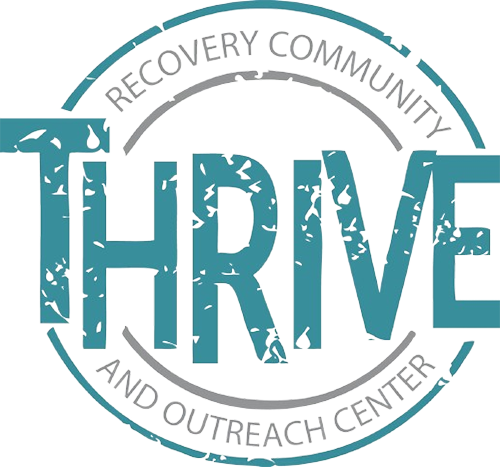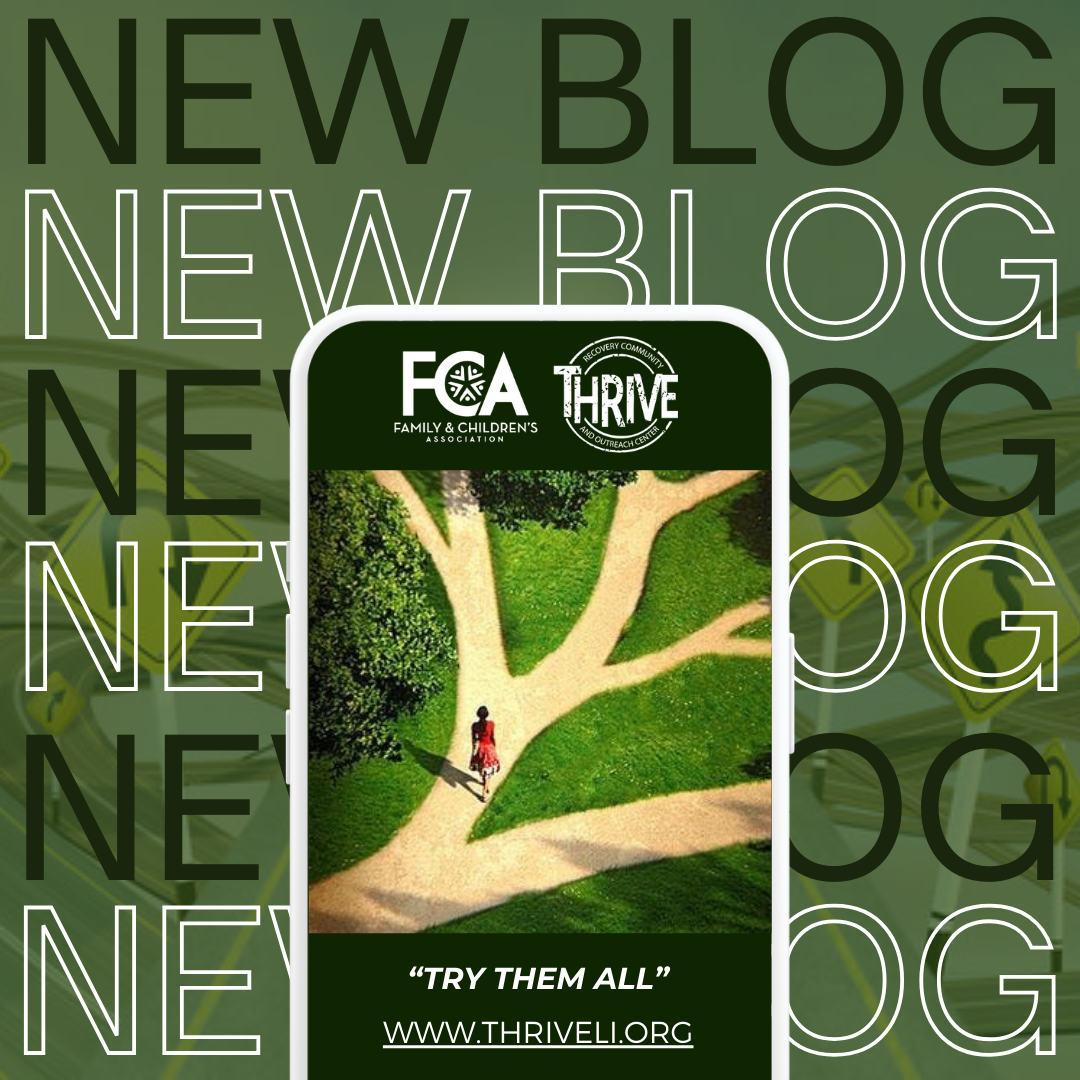At THRIVE, we believe that there are multiple pathways to recovery.
There is no one right way or wrong way.
Every individual is unique. What might work for one person, might not work for another.
If you have ever spent any time at THRIVE, you would be hard pressed to find a peer advocate that would tell you differently.
I did not have this perspective before becoming a peer advocate.
I had 13 years of recovery in the bank when I began my Certified Recovery Peer Advocate training and I quickly realized that I did not have the awareness nor the knowledge that I thought I had when it came to recovery.
It was quite humbling to be honest.
It was also the beginning of what is now an evolution of my own personal recovery.
Here are a few options to check out. All of them are FREE and available both in person and online.
12-Step Programs
The AA website offers this description of the program: “AA’s Twelve Steps are a set of spiritual principles. When practiced as a way of life, they can expel the obsession to drink and enable the sufferer to recover from Alcoholism.”
I gained exposure to 12-Step programs early on in my sobriety and have always found members to be welcoming, kind and encouraging. The steps laid out in Alcoholics Anonymous gave me insight into why I could not stop drinking, the power of identification and most importantly hope. There are a ton of 12-Step groups tailored to distinct types of recovery. There is Narcotics Anonymous (NA), Cocaine Anonymous (CA), Gamblers Anonymous (GA), Overeaters Anonymous (OA) and Gays and Lesbians in Alcoholics Anonymous (GaL-AA), which embraces all members of the LGBTQ+ community, to name only a few.
Smart Recovery
One of the programs I had not heard of is something called Smart Recovery. The Smart Recovery website describes its program as “an evidenced-informed recovery method grounded in Rational Emotive Behavioral Therapy (REBT) and Cognitive Behavioral Therapy (CBT), that supports people with substance dependencies or problem behaviors to:
1. Build and maintain motivation.
2. Cope with urges and cravings.
3. Manage thoughts, feelings, and behaviors.
4. Live a balanced life.
I only recently discovered Smart and have already been to a bunch of online meetings. It is more of a science-based program and might also be considered more of a “self-help” program. If you are a more
practical and fact-based type of person, this could be a great option to explore. There are both in person and online meetings available via their website.
Recovery Dharma
I was introduced to Recovery Dharma through THRIVE. Recovery Dharma is just one of many outside groups that are made available at the THRIVE. The Recovery Dharma website offers this description of the program: “Recovery Dharma is a peer-led movement and community that is unified by our trust in the potential of each of us to recover and find freedom from the suffering of addiction. We believe that the traditional Buddhist teachings, often referred to as the Dharma, offer a powerful approach to healing from addiction and living a life of true freedom.”
I have had the opportunity to participate in several Recovery Dharma meetings and the best way I can describe it is, healing, centering and spiritual. One of the things I love about it is there is a strong emphasis on focused meditation. And in case you are wondering, you do not have to be Buddhist to be a member. It has been a terrific addition to my recovery.
Women For Sobriety
WFS is a program I have no personal experience with, but I have heard incredibly positive things. It is a program for women specifically. The Women for Sobriety website summarizes the program like this: “Founded in 1975, Women for Sobriety (WFS) is the first peer-support program tailored specifically for women overcoming substance use disorders (SUDs). With both regional and online meetings, the New Life Program provides supportive, empowering, secular, and life-affirming principles that address the unique needs and challenges of women in recovery.”
It can be very intimidating and even overwhelming to walk into a group or a meeting when you are first beginning your recovery journey. The idea of having a safe space for women, supported by women, might make it easier for a woman to take that first step.
What I have experienced on my own journey is that my recovery is always stronger when I have more than one tool in my recovery toolbox.
It can be going to the gym, listening to music, therapy, out-patient programs, getting involved at your local church, synagogue, mosque, or whichever faith-based community you belong to, volunteering and of course, getting involved with the recovery community by coming to THRIVE.
There are so many amazing ways to enrich your recovery.
Do your own research, experiment and try to keep your mind open. You will eventually find what is right for you if it doesn’t find you first.
What it all comes down to is that there are as many ways to recover as there are people in recovery.
Most importantly, you do not have to do it alone.

